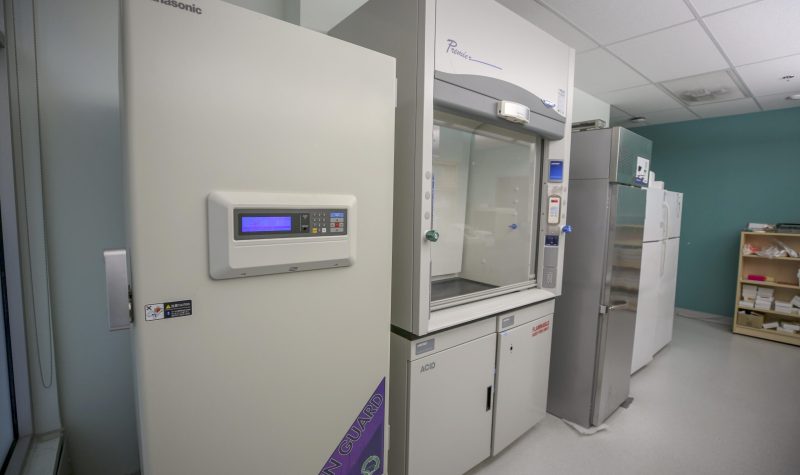Nova Scotia will be receiving the first batch of COVID-19 vaccines next week.
The province’s chief medical officer of health Dr. Robert Strang announced frontline health care workers dealing with COVID-19 in the central zone will be the first to receive the 1,950 doses of the Pfizer COVID-19 vaccine once it is approved by Health Canada.
“We need to protect and preserve our frontline workers so they are around and can treat, not only those with COVID but everyone else as well,” said Strang.
Each week, beginning Dec. 15, the province expects to receive a supply of the vaccine until it receives its full allotment of 150,000 doses, before the end of March 2021. The Pfizer vaccine requires two doses to be effective which means 75,000 Nova Scotians can be immunized from this supply.
Because the vaccine is delicate and difficult to transport as it must remain at a temperature of -70 Celsius, the focus will be placed on the central zone which currently has the largest number of cases.
The Moderna vaccine, which is expected to be available by the end of the month, is stable at temperatures of -20 Celsius which is consistent with other vaccines.
Strang said Nova Scotia is following the National Advisory Committee on Immunizations (NACI) guidance on COVID-19 vaccines. During the first three months of 2021, the focus will be to immunize: long-term care residents and staff, seniors living in the community beginning with those who are over 80 years of age, then people over 75 and then people over 70 and health-care workers directly involved in patient care.
Strang expects more vaccine will be made available by the federal government throughout the year and it may take some time before it can be administered to everyone who wants to be vaccinated.
“And so we’re probably looking at the fall of 2021 before we’re actually finished with the full COVID immunization program and every Nova Scotian has had an opportunity to get COVID vaccine,” said Strang.
The province also announced testing is now available to everyone whether they are showing symptoms or not. To register, go to the Nova Scotia government coronavirus website.
Strang again cautioned people that Christmas will have to look different this year. While he is still recommending against any travel during the holidays, he said if people choose to ignore the recommendation they need to be aware of what restrictions are in place at their destination if they are travelling outside the province as well as what conditions they need to follow when they return.
“We may still have restrictions on travel within the province, that is yet to be determined,” said Strang. “But regardless if we do or not, staying close to home, avoiding non-essential travel out of the province, focusing on small gatherings, small numbers, making sure if you are getting together, try to do it as much as possible with consistent people over time.”
Strang said sacrificing holiday time with loved ones this year will be rewarded in the long run.
“If we have fewer people around our tables this year that means that everyone is going to be here next year to celebrate. I believe that’s a price we’re all willing to pay.”
Reported by Ed Halverson
E-mail: edhalversonnews@gmail.com
Twitter: @edwardhalverson


